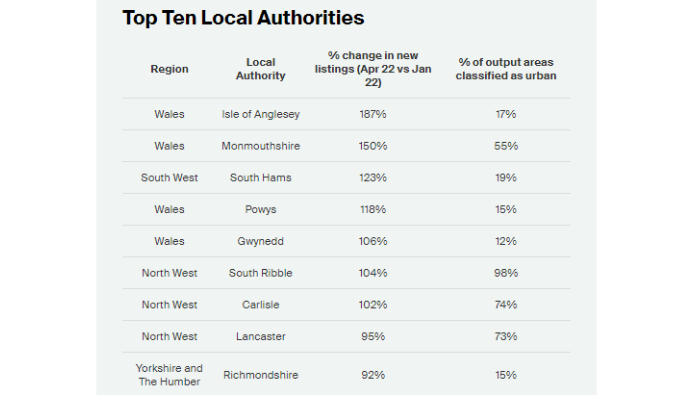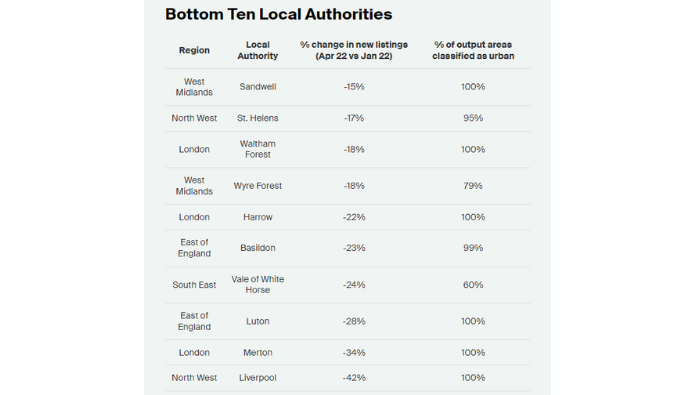Rural areas are dominating the boost in property supply.
Agents have reported an improvement in sales stock in recent weeks.
Analysis by Knight Frank suggests a hangover from the “race for space” in rural areas is helping to drive supply higher.

Rural areas are dominating the boost in property supply.
Agents have reported an improvement in sales stock in recent weeks.
Analysis by Knight Frank suggests a hangover from the “race for space” in rural areas is helping to drive supply higher.
The agent analysed data from portal OnTheMarket and found there was a 19.2% increase in the number of new listings between January and April this year in England and Wales.
However, while there was an increase of only 5.7% in London - the smallest rise - the number of new properties listed for sale in Wales jumped by a third.
The disparity reflects how supply is building more quickly in rural rather than urban markets, Knight Frank said.
Indeed, the 20 local authorities that registered the biggest increase in supply over the period were, on average, classified as 55% urban.
For the bottom 20 areas, where supply fell, they were classified as 92% urban on average. See full table below.
James Cleland, head of the country business at Knight Frank, said: “I suspect it is a hangover from last year when so many rural owners didn’t list their house as they didn’t think they would be able to find anything to move to.
“What was a vicious circle is becoming a virtuous circle as higher levels of supply leads to more stock coming on.”
Tom Bill, head of UK residential research at Knight Frank, added: “A stronger sense of seasonality in more rural areas will have contributed to supply rising more quickly in the first few months of the year.
“It’s also likely that in urban centres like London, sellers are less motivated by concerns over peaking property prices after weaker growth during the pandemic.”
The UK property market will continue on the path to normality this year and we forecast that a greater balance between supply and demand means growth will slow to single digits by the end of 2022.
There are many moving parts that will affect house prices across different parts of the country, including cost-of-living pressures and higher mortgage rates. However, higher supply is likely to exert
It comes as Worcestershire-based independent agent Nicol & Co reported that working from home is driving a trend towards upsizing on its patch.
Coral Walrond, sales manager at Nicol & Co’s Droitwich office, said as well as the desire for more outside space as a result of living in lockdown over the past two years, they were also seeing demand for more inside space.
She said: “For many years, we have seen downsizing as a trend as family members leave the nest and the owners find they do not need so much space.
“But now, working from home (WFH) for many employees is definitely here to stay. Although we are seeing a partial return to the office, many are still finding they can be equally productive from home.
“As working from home becomes a more permanent feature of the economy, then homeowners are looking for a more permanent space in which they can work. In the early days, the spare room or the kitchen table doubled up as workspace, but that’s not really viable in the longer term.”


Join the conversation
Be the first to comment (please use the comment box below)
Please login to comment